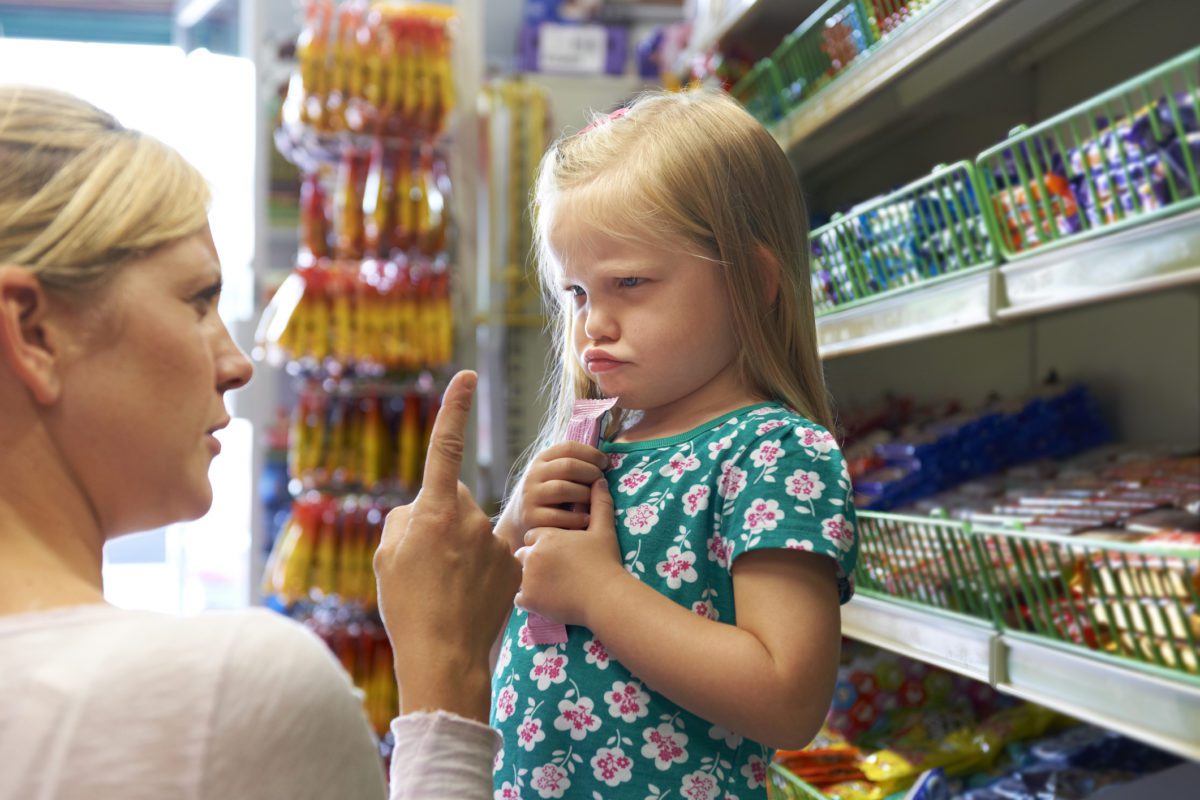
It may be the most difficult goal of parenting: raising children to be obedient and respectful of authority, while also allowing them to become self-sufficient and independent.
Parents must maintain their authority while guiding their children to make their own decisions. But somewhere along the way, parents have started to relinquish control to their kids.
Why has this happened, and what can we do to shift our parenting back in the right direction?
Maclean’s reported:
Parents in North America have become prone to asking their children rather than telling them. “It’s natural,” says Gordon Neufeld, a prominent Vancouver psychologist. “Intuitively, we know that if we’re coercive, we’re going to get resistance.”
In the last generation or so, a proper balance in parenting has been lost. We begin with little things like negotiating at dinnertime, for example, “If you eat three bites of vegetables, you can have dessert.” And once we begin these negotiations, we increasingly give more and more control over to our children.
Maclean’s continued:
“When we consult our children about issues that symbolize nurturance like food, we put them in the lead.” That triggers an innate psychological response, and their survival instincts activate: “They don’t feel taken care of and they start taking the alpha role.”
Many kids are actually overpowering their parents. A functional family unit hinges on the one social construct that contemporary society has been working hard to dismantle: hierarchy. “You need a strong alpha presentation to inspire a child to trust you and depend upon you,” says Neufeld of parents. “If we don’t have enough natural power then we’re hard-pressed to [make] the demand or [set] the limit” for children. “We need to put parents back in the driver’s seat.”
Parenting now has so many outside influences that we have lost our authority. With the rise of online resources and social media, we are constantly comparing our parenting to others or looking for all the latest news on the best ways to raise our child.
This dependence has taken away our confidence in our ability to parent on instinct. We are concerned with what other parents think of us, and we are concerned what our own children think of us. Our lack of confidence makes us appear less authoritative – and our kids know it.
Part of the challenge lies in the fact that parents don’t want to fail—at nurturing and governing simultaneously—and they certainly don’t want their children to fail in their personal development, in school and at social networking.
That pull and push moms and dads feel—between caring about how other parents are raising their kids while rejecting the constant comparisons—defines this generation of parents for better and worse. Katie Hurley, a psychotherapist in Los Angeles says, “We’ve been conditioned to question ourselves—to constantly look for information to make sure we’re doing it right. Because of that, parents are in a state of learned helplessness.”
Another reason for this shift in the family dynamic is the fact that parents now involve (perhaps too much) their children in every family decision. We ask our children what they want instead of telling them what they will do. The idea of being obedient seems to have become obsolete or “old-fashioned.”
Today’s parents feel that teaching their kids obedience means they will become pushovers or fall prey to bullying – but this also means that our children are not respecting our authority as parents as much as kids in previous generations.
And by giving them more control and too many choices, we are breeding a culture of disrespect and disobedience in the family unit.
Maclean’s reported:
That’s partly why a “culture of disrespect” has sprouted in North America. As kids have become less attached to and influenced by the adults in their lives, same-age peers have come to matter more to them. Young children “are not rational beings,” says Neufeld. Part of growing up is testing boundaries; little ones, by their very nature, can’t be relied on to hold each other accountable—nor should they be.
Dr. Leonard Sax, a psychologist, author, and medical doctor warns:
“Kids are not born knowing right from wrong. That child in their late 20s is much more likely to be anxious, depressed, less likely to be gainfully employed, less likely to be healthy, more likely to be addicted to drugs or alcohol. We now know this,” he says.
“Parents who are authoritative have better outcomes, and it’s a larger effect than the effect of race, ethnicity, household income or IQ.”
Dr. Sax also believes that more than any other influence, parental modeling is key. Having confidence in your parenting, with Mom and Dad as the ultimate authority figures in their child’s life, is vital. Forming strong adult relationships so that you are not overly dependent on your kids for your emotional needs is also important.
He recommends teaching and modeling “humility and conscientiousness,” which keep kids from feeling too much of a sense of entitlement and help them understand their place in the family dynamic.
The family hierarchy is essential for emotional health and stability. We can find a balance in our parenting by establishing our authority and requiring obedience to our rules, while also teaching our kids how to think for themselves and become strong individuals. Despite what many parents think, these ideas are not mutually exclusive.
What are your thoughts on establishing authority and teaching obedience as a parent? How have you found balance with your own children? Leave us your comments.
